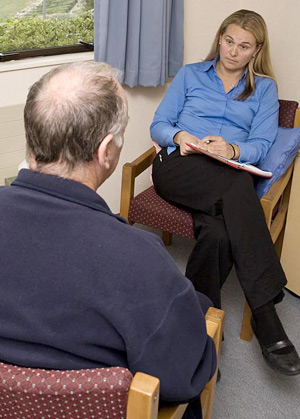Criminal Justice Psychologist
Tasks & duties

Criminal justice psychologists may do some or all of the following:
-
assess the lifestyle, emotional and behavioural problems of offenders on a one-to-one or group basis and target the underlying problems causing crime to reduce the chance of reoffending
-
design and provide treatment programmes for individuals and groups
-
prepare reports, including risk assessment, about prisoners for the Parole Board and courts
-
provide advice to parts of the criminal justice system and Department of Corrections such as judges, the Parole Board and probation officers
-
train other staff
-
evaluate the programme development of a government department or organisation
-
industry research, such as risk assessments, offending rates, type of offending and special treatment programme assessments
-
supervise programme facilitators who present programmes written by psychologists
Skills & knowledge
Criminal justice psychologists need to have:
-
good people and communication skills
-
observational skills
-
knowledge of criminal behaviour
-
up-to-date knowledge of theories and research relating to offending
-
knowledge of treatment and assessment methods such as psychometric tests
-
understanding of how the criminal justice system works
-
interviewing skills
-
the ability to assess and treat psychological factors that lead to offending
-
good research and report-writing skills
Entry requirements
To become a criminal justice psychologist you usually require a postgraduate diploma in clinical psychology, or an equivalent qualification.
Secondary education
A tertiary entrance qualification is required to enter further training. Useful subjects include English and maths.
Training on the job
The Department of Corrections offers on-going education programmes for its staff, but for those working independently the New Zealand Psychological Society runs workshops and training courses several times a year for its members.
Registration
Criminal justice psychologists need to be registered with the New Zealand Psychologists Board.
Useful experience
Previous experience working with people in a helping or counselling role is useful for working as a criminal justice psychologist. Volunteering at places like Samaritans and Youthline can also be useful experience.
Video
Corrections Psychologist and Programme Facilitator
From just a job on you tube
Related courses
Counselling
Psychology
For more information, please refer to Career Services.
Document Actions
